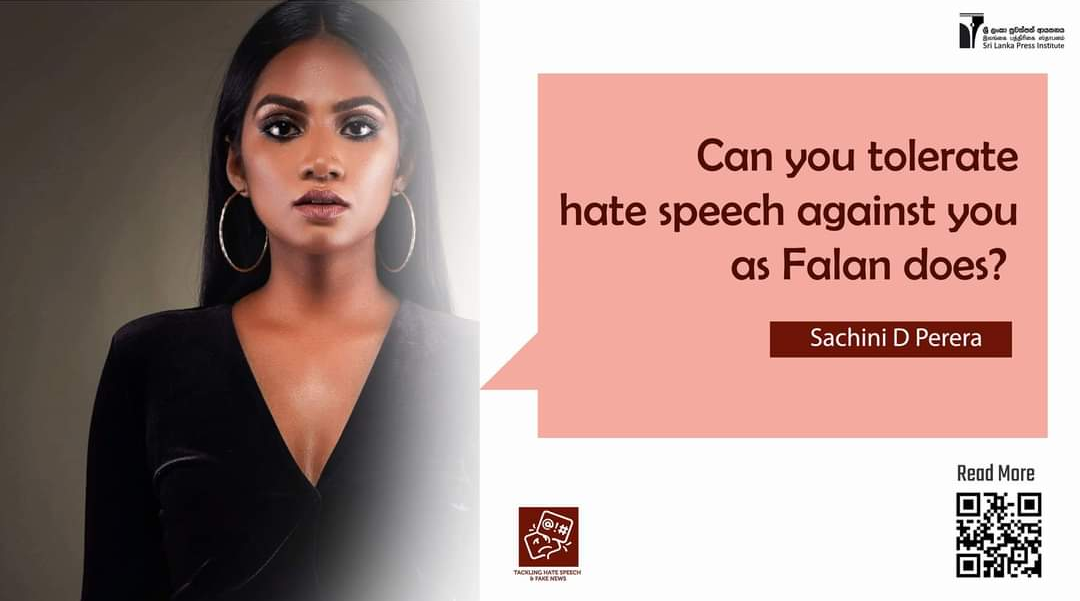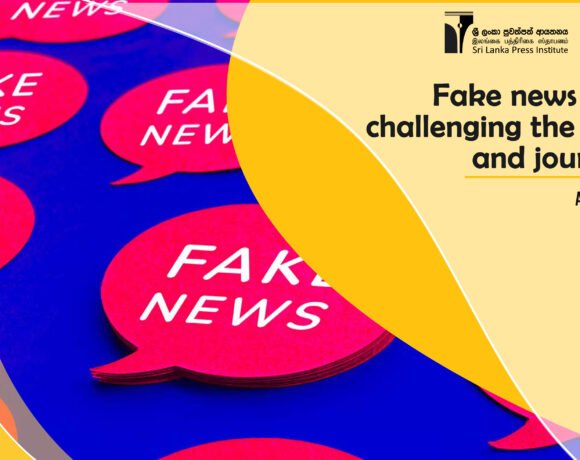Sachini D. Perera
There has been much debate around the winner of the “Derana Dream Star Season 9” singing competition, Falan Andrea Jansen. Many said Falan did not deserve the trophy. This resulted in many negative and derogatory comments on her social media. Some of these comments included:
“Falan do not deserve this trophy as she is not talented enough like the other two contestants”
“What Falan did is she only showed off her body with a westernized fashion and danced all over the stage”
“She doesn’t even know how to sing a classical song but English songs. She has no talent at all”
“This season was very shameful as the most talented person did not deserve the trophy”
“Dream Star just only wanted to multiply their programs’ views using this ‘Catholic lansi girl’.”
This kind of hateful gossip is difficult to control in our society due to many socio-cultural and psychological conflicts that result in this kind of content going viral in a short period of time and in turn might influence the relevant person or community in a bad way. Due to global communication influence, such inflammatory and hateful speeches have widely disseminated across social media.
The Cambridge Dictionary defines hate speech as “public speech that expresses hate or encourages violence towards a person or group based on something such as race, religion, sexuality”. According to expert sociological views, the post-modern human acquired an atmosphere with many opportunities within online mediums to cyberbully others they cannot reach. It also comes with reinforcement from others with a similar mindset and could eventually lead to an act of violence.
The question is ‘why do people tend to throw stingy words at a popular icon?’. Mrs Nirosha Kulasekara, a senior lecturer at the University of Colombo said, “humans are born in abstract states and are always pressured or being suppressed consciously or unconsciously due to psychological cold wars they have with themselves. It depends on some root causes such as one’s social status, socio-cultural background, mind power, personal freedom, economic stability, attitudes and many other factors.”
We still introduce our country as a ‘Sinhala Buddhist’ one which emphasizes racist and religious splits while indirectly discriminating against minority communities who live on this one tiny island. The majority does not question as they come with Sinhala Buddhist intentions. Being from a minority ethnic group in the country, Falan Andrea receives verbal harassments mainly from Sinhala citizens. In another way, we can clearly see a sense of ‘cultural slavery’ in these instances of hate speech directed at Falan. Many insulted her fashion sense, choreography/dance moves and voice, her personality may have been a cultural shock to our society.
We see other popular icons in Sri Lanka who are victims of hate speech in the same way as Falan. She is merely one recent instance. Why are so many people thus stereotyped? Mrs Kulasekara very clearly responded, “people have psychological strengths and weaknesses which pop up based on the situations and incidents they face in their routine lives. It builds one’s personality and opinions. In Sri Lanka, most people are afraid of boundary-breaking, radical personalities and this is more apparent with female personalities. This is not meant to arouse feminist opinions but to convince you that hate speech also exists with a sense of gender inequality.”
“Culture in countries like Sri Lanka is very close-ended to appreciate someone’s ‘featured freedom’ which is also presented in mass media. This indicates ‘inferiority complexes’ which can transform into a hate speech trend via so-called mass media. Essentially, this is social media harassment. In the instance of hate speech against Falan, most of the comments fall under body shaming, cultural judgement, prejudice, religious identity and sexual orientation. When we look at these categories, they are all born out of personal biases, egocentric, ethnocentric and post-colonial impacts with a mix of hatred and jealousy”, Mrs Kulasekara explained.
It is time to reconsider ethics around the general public’s consumption of social media. Unethical use of new media freedom can simply be defined as a cybercrime which can also be a psychological crime. No one has no right to exercise ‘freedom of speech’ while violating another’s right to live by their identity and talents. As a nation, we still live by a colonial cultural mindset which passes down from generation to generation. This chain must be broken starting with our attitudes. Of course, this is all easier said than done. Mrs Kulasekara mentioned, “this pattern could be diminished within a few generations with the right cultural transformation which could work in major aspects in a socio-cultural context within Sri Lanka.”
We still call our country a democratic republic. But we are too far away from democracy to protect and appreciate someone by their identity or personality. Democracy never recommends prejudicial and biased hate speech or violence towards moral society. Hate speech campaigns contain negative morals that we should abolish from our personalities and our cyberspace. In this scenario, it does not mean that addressing or tackling hate speech is to limit or prohibit one’s freedom of speech. It is obviously about taking a stand against any kind harassment that we tend to throw at someone with prejudice. Keep yourself away from being drivers and actors of hate speech, not only for iconic stars like Falan but for every Sri Lankan.









